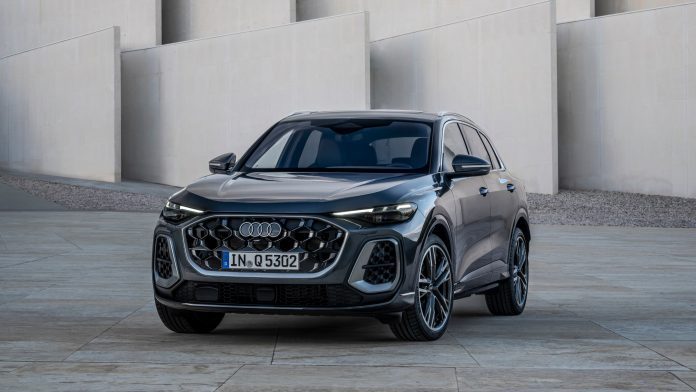Volkswagen has frozen all Audi vehicle imports to the U.S. following President Donald Trump’s April 2 announcement of a 25% tariff on auto imports, the company confirmed Monday. Thousands of Audi models are now being held at U.S. ports while executives determine how the tariffs will impact operations.
The German automaker has instructed dealers to rely solely on existing stock—about 37,000 vehicles, or two months’ worth of sales—as it halts further shipments “until further notice,” according to a memo first reported by Automotive News.
Audi is especially exposed to the new duties. The company manufactures its top-selling U.S. model, the Q5, in Mexico, which now falls squarely within the scope of the tariff. Additionally, the rest of its lineup comes from Europe, including Germany, Hungary, and Slovakia.
The 25% tariff, which took effect immediately, has sent automakers scrambling to assess supply chain vulnerabilities. According to Cox Automotive, the average automaker in the U.S. maintains just under three months of inventory, offering only a brief buffer.
Volkswagen’s move to pause imports reflects growing concern within the industry. Audi sold nearly 57,000 Q5s in the U.S. last year—about a quarter of all Audi sales in the country—making the model’s future in the American market uncertain under the new tariff landscape.
Meanwhile, European automakers and policymakers are responding to the escalating trade tensions. Executives met with European Commission President Ursula von der Leyen on Monday to weigh retaliatory strategies. European auto stocks plummeted to 16-month lows amid fears of shrinking demand and rising vehicle costs.
President Trump also rejected the EU’s recent proposal for a “zero-for-zero” tariff agreement on industrial products, calling it inadequate.
However, with no resolution in sight, global automakers must revamp their logistics, pricing, and production strategies to protect their market share in the U.S.





